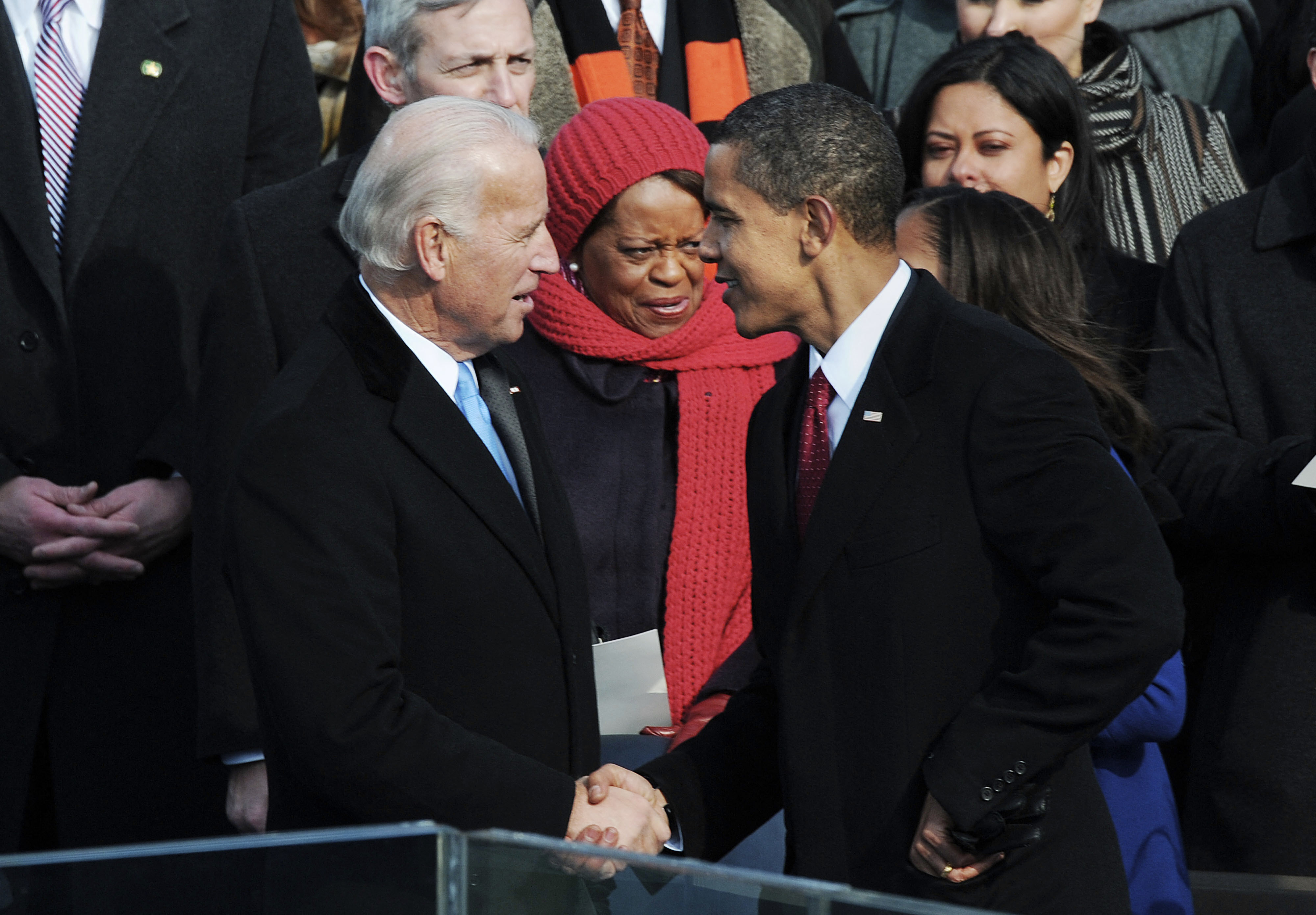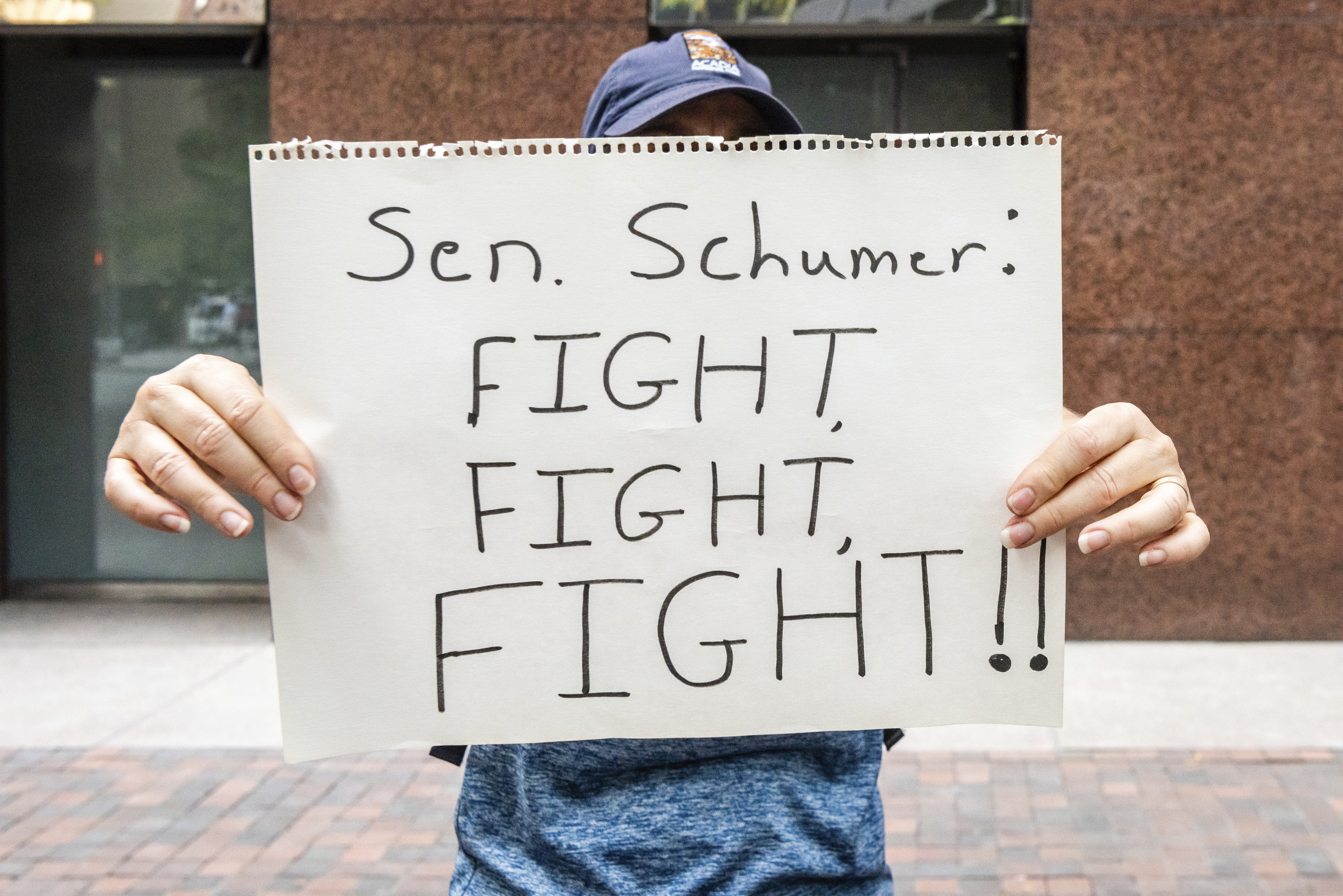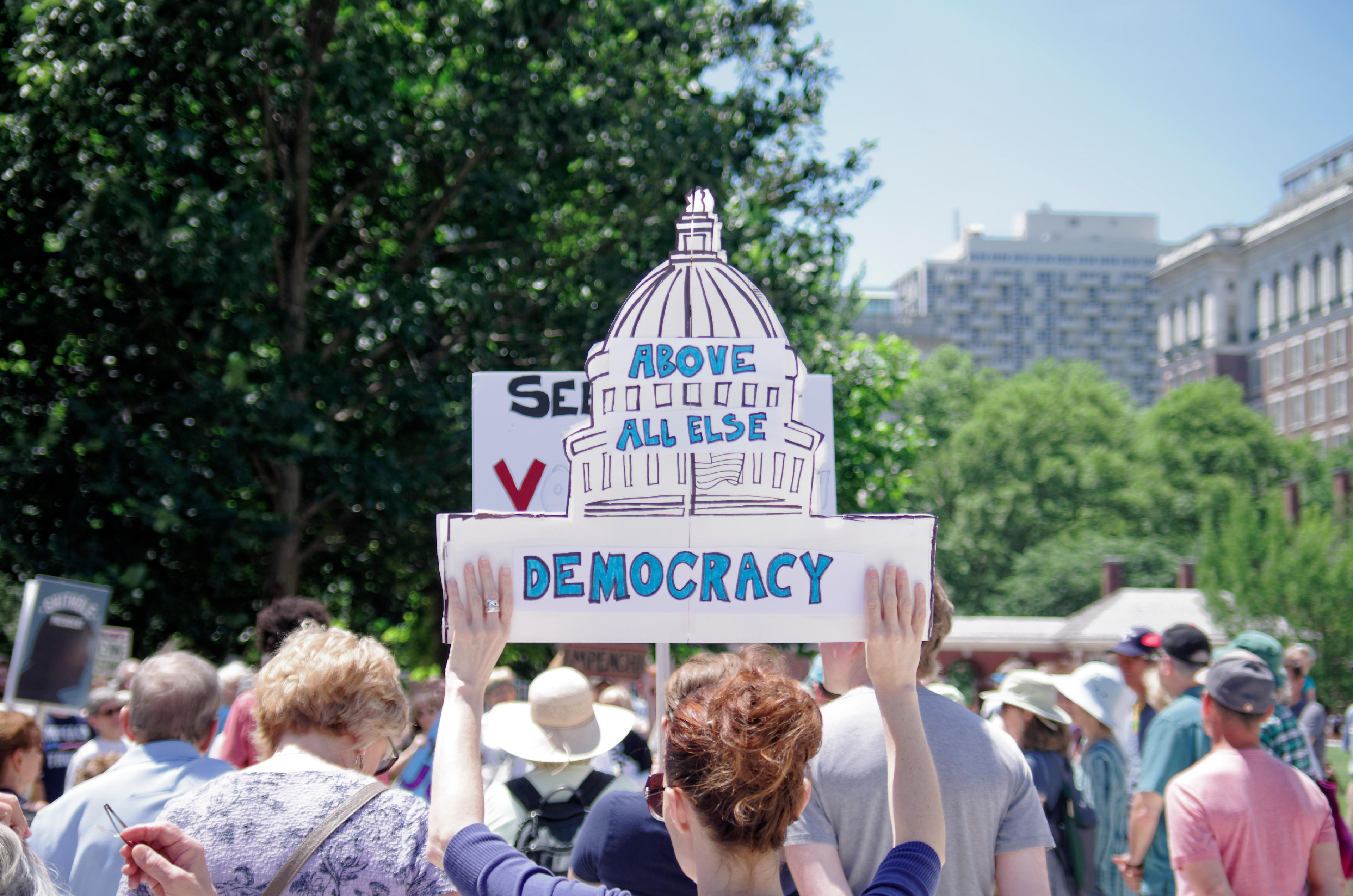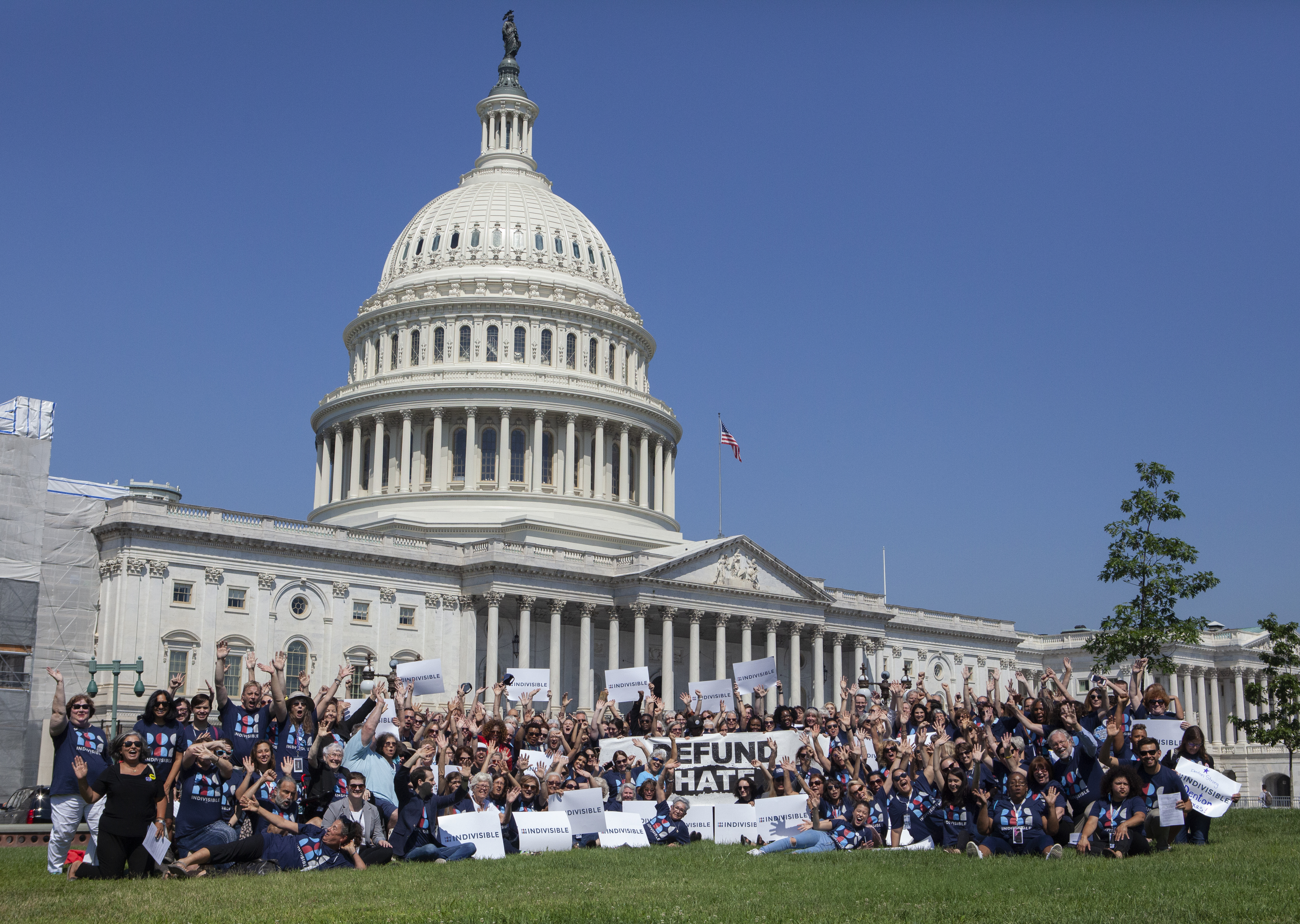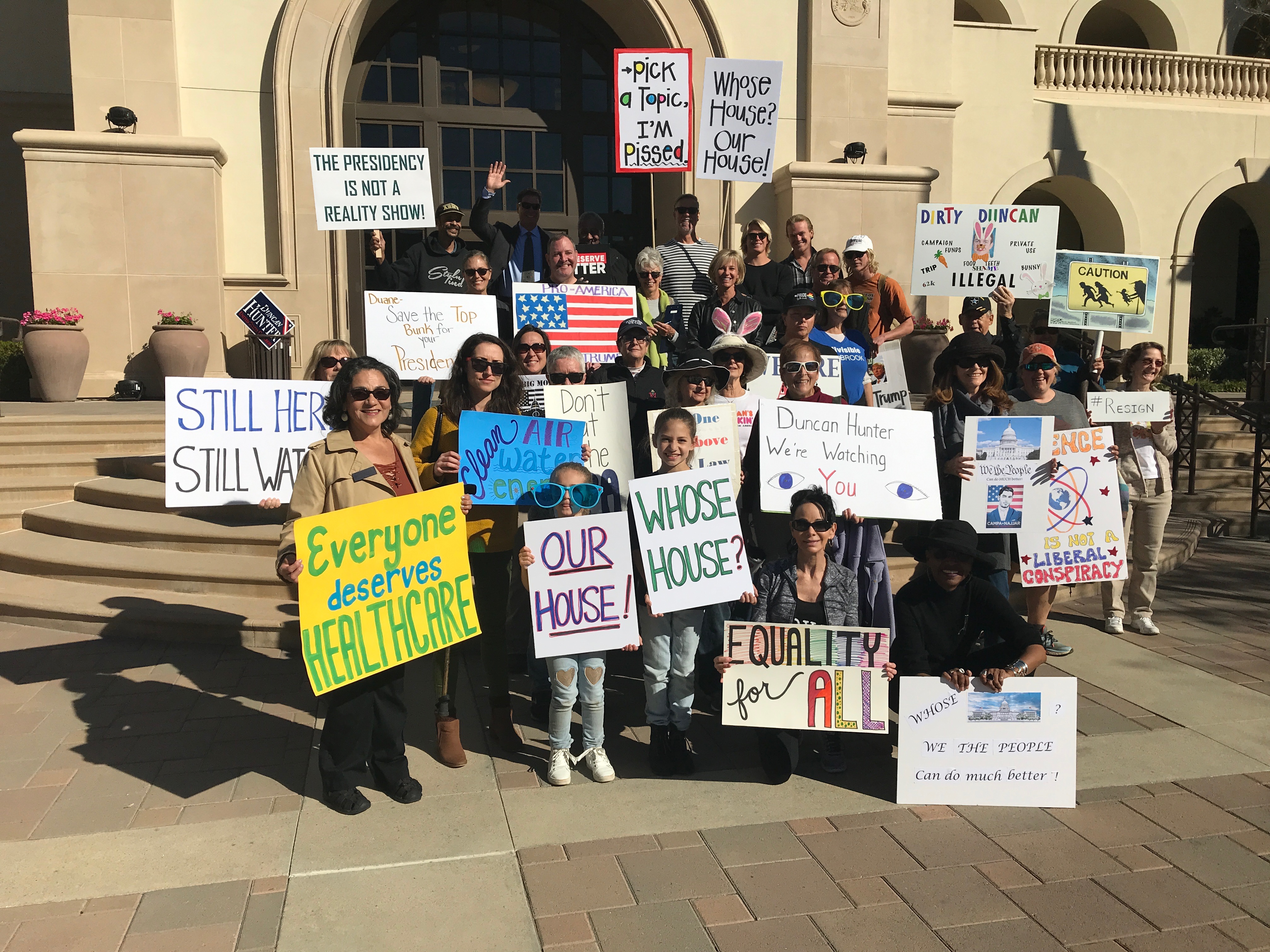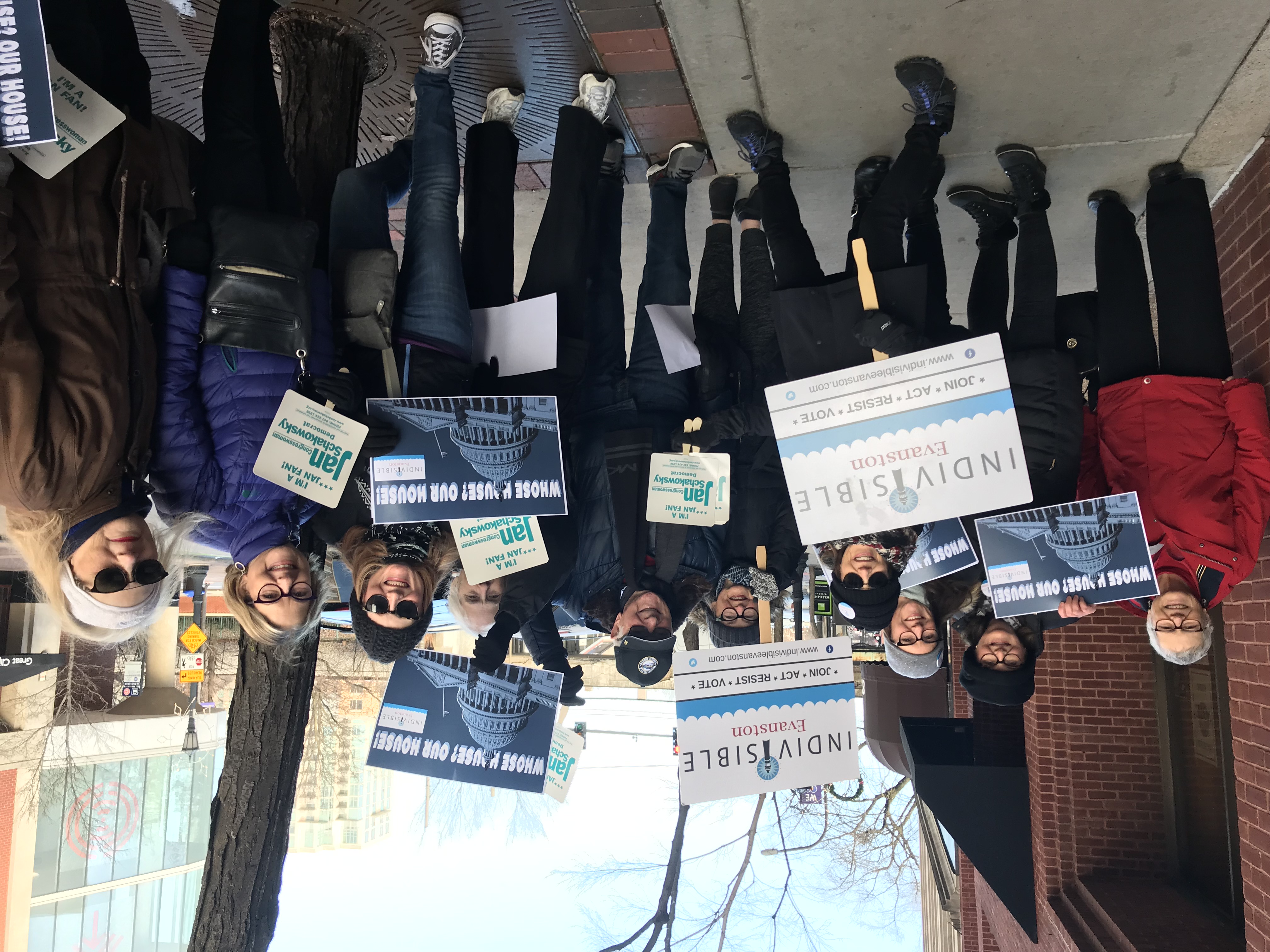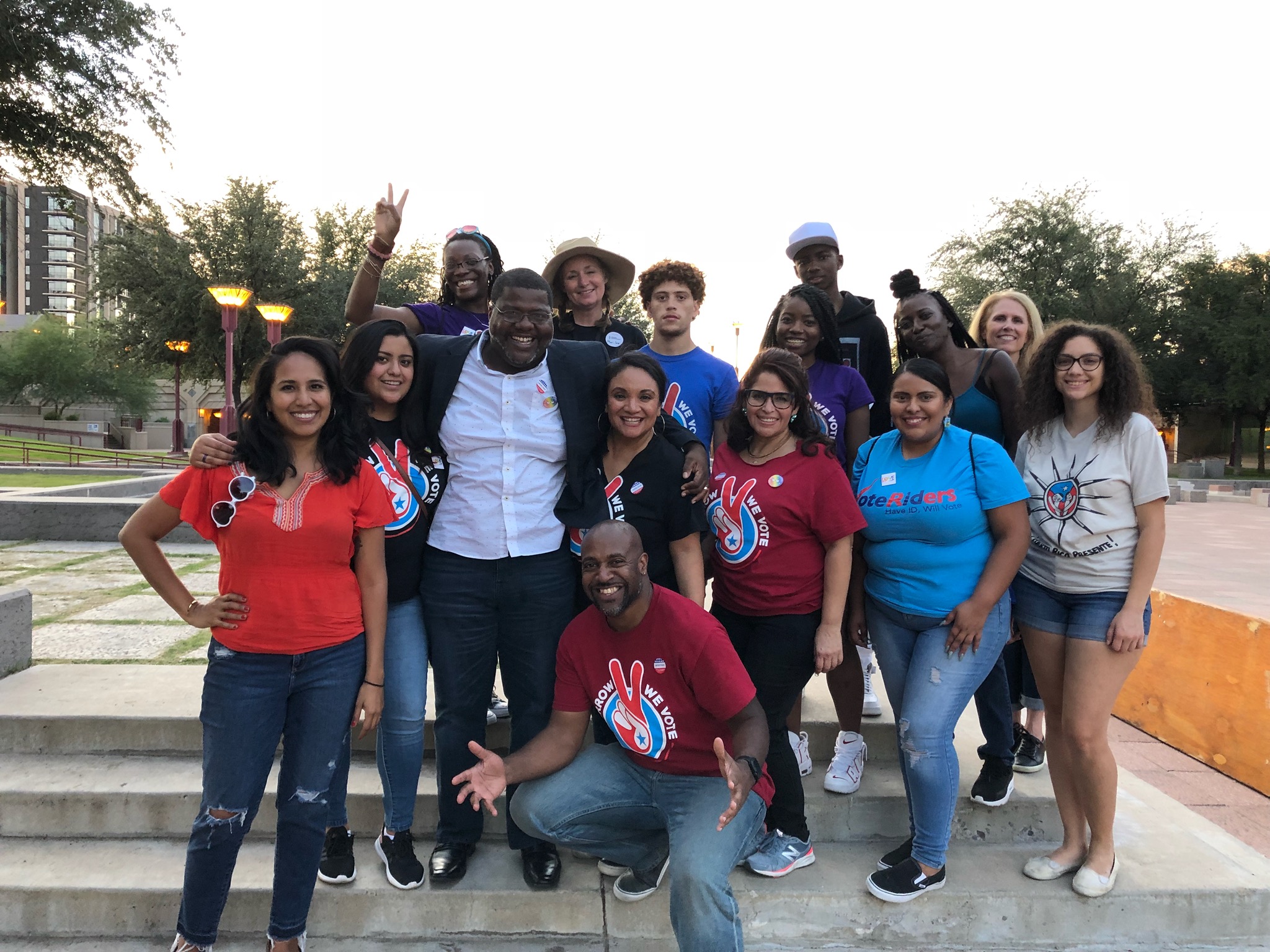For decades, Republicans have rigged our democracy to capture and hold
power for a small group of rich, white, (mostly) men.
This takes many forms: voter suppression, gerrymandering, buying
elections, packing the courts, attacking the press, suppression of
unions, protests and civil society, the list goes on. They’re aided by
systemic imbalances in our system, like a wildly unrepresentative
Senate, that advantage white and conservative areas of the country. The
result is what we can see today: a coalition dedicated to preserving
white and corporate power has largely succeeded in shaping the
structures and rules of American democracy in its favor. They’ve been
playing this game for a long time—and they’re very close to
winning for good.
We’ve defeated Trump, and now it’s time to defeat the forces that
allowed him to rise.
We can’t keep playing a rigged game and expect a different result.
The answer to the basic question, “Why can’t we enact wildly popular
health care, climate, labor, tax, immigration, or gun violence policy?”
is that our system does not respond to the will of the people. Under the
current Republican rigged system, we’re limited to paltry social and
economic reforms that can squeak through a disproportionately white,
male, conservative, unrepresentative Senate with 60 votes. Any gains we
make will be continually under threat by a Supreme Court packed with
right-wing hacks. Our progress will always be short-term, our
aspirations will always be limited, and the gap between our promises and
our ability to deliver meaningful change will continue to undermine
faith in government. In the worst-case scenario, Republicans will
successfully subvert enough of our democracy to entrench their
long-term, minority-rule power permanently.
That’s why we have to fix our democracy to make it more responsive to
the people.
In order to pass health care, environmental, immigration, economic, and
social policies that we want to see, we need a democracy that actually
reflects the will of all its people. Our job now is twofold:
-
We have to ensure democracy reform is at the top of the priority list.
-
We have to ensure that democracy reform is structural to
rebalance power towards the people. That means fixing the senate,
fixing the courts, and taking away McConnell's veto so legislating is
possible.
All of this can be done with simple legislation passed by congress on a
majority vote and signed into law by President Biden. This chapter
explains how we get there—not in some far-off future, but
right now.
As described in the previous chapter, Congress has a very limited window
of opportunity to actually pass legislation. To kick off this historic
period of legislating, first, fix our democracy.
What about constitutional amendments?
Unfortunately, some of the structural democracy reforms we need, like
overturning the Citizens United decision and eliminating the electoral
college, require a constitutional amendment. We’re focusing on the
structural reforms that can be accomplished through simple legislation
because that’s where we have an immediate opportunity. We will
continue to fight for constitutional reforms in the future.
What Congress has done so far on democracy reform
The good news is that we’re not starting from square one: Democrats have
been passing democracy reforms in the House since they took the majority
in 2018. With their House majority in the last Congress (116th), they
passed the
For the People Act(H.R. 1), legislation that would get money out of politics, expand
voting rights, combat corruption, secure our elections, and more.
Democrats also passed
The John Lewis Voting Rights Act
(H.R. 4), which would restore full protections of the 1965 Voting Rights
act, parts of which were invalidated by the U.S. Supreme Court in 2013.
And, for the first time ever, the House passed the Washington, D.C.
Admission Act (H.R. 51), which would admit D.C. into the union as the
51st state.
Each of these would help to unrig our democracy and put power back in
the hands of Americans. However, they are neither guaranteed to pass
again, nor is any one of these alone enough to fix our broken democracy.
In Congress, it’s one thing to vote for a messaging bill; it’s a whole
different ball game when a bill has a chance of becoming law.
Democracy reform in the next Congress isn’t a given.
House Democrats deserve credit for passing these democracy reforms in
the last Congress, but we can’t assume that they’ll pass now that we
have a trifecta. The truth is that everyone knew that McConnell
would block each of these bills in the Senate and that none would become
law. In Congress, it’s one thing to vote for a messaging bill; it’s a
whole different ball game when a bill has a chance of becoming law. In
order to get these democracy reforms passed—or prevent Democrats
from getting cold feet and severely weakening the reforms—it’s
going to take a significant amount of outside pressure, a movement, led
by Indivisibles.
Structural reforms: Fix the Senate, Fix the Courts
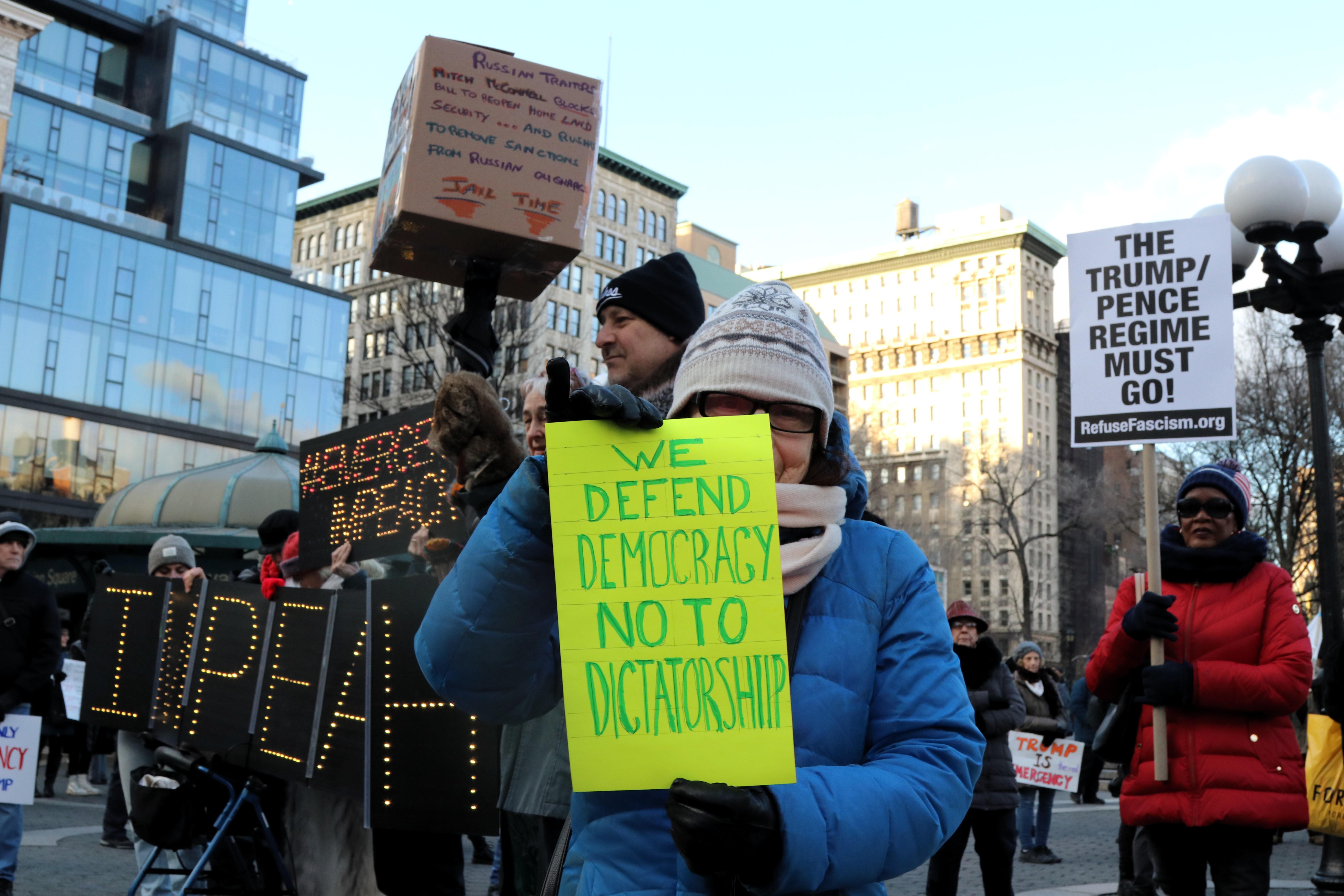
Image by Carlos Fernandez
The starting point for the democracy reform debate will be the For the
People Act of 2019 (H.R. 1), since it’s already passed once in the House
and contains some of the most important and necessary democracy reforms
we need. Indivisible groups should feel proud of what’s in the For the
People Act—Indivisible was a founding member of the coalition that
got it past the finish line. But let’s be honest about something: the
For the People Act of 2019, as important as it is, won’t be enough. It
still won’t address the structural biases that favor Republicans and
that, if ignored, will soon leave Democrats permanently out of political
power, and without any ability to change the system.
That’s why it’s important that Democrats use their trifecta to pass key
structural reforms. And the two biggest barriers to enacting and holding
on to popular reforms right now are the Senate and the Courts. So here’s
a wild idea: let’s try to fix them. Here’s how.
Make D.C. a state to bring balance to the Senate.
The Senate was designed from the beginning to give disproportionate
power to land-owning white men; however, we’ve gotten to the point where
Republicans can permanently maintain control of the Senate
while representing a shrinking minority of the U.S. population. As more
and more Americans concentrate in fewer and fewer states, this problem
(disproportionate political power to a shrinking ideological minority)
will only become worse. Here’s a shocking figure:
in 20 years, half the U.S. population will live in just 8 states. That means half the population will have 16 Senators, and the other
half will have 84 senators. That overrepresented half? It’s whiter, more
rural, and more conservative—and much more Republican. That’s our
democracy’s future. That is, unless we start adding states, beginning
with making D.C. the 51st state. There
are ton of reasons to make D.C. state, and here are a few:
-
D.C. has 700,000 residents—that’s more residents than 2 other
states (Wyoming and Vermont)
-
D.C. was originally disenfranchised after Reconstruction because white
political leaders were unwilling to allow an increasingly Black city
to govern itself. If made a state, it would be the only state in the
nation to have a plurality of Black residents—which is one of
reasons Republicans actively oppose statehood.
-
D.C. residents pay more in taxes than 22 other states. (There’s a
reason D.C. license plates say “End Taxation Without Representation.”)
-
D.C. residents WANT statehood—they’ve been fighting for it for
decades, and most recently voted for statehood in 2016.
-
House Democrats passed a D.C. statehood bill in 2020 and it has
overwhelming support among Senate Democrats.
The way to make the Senate more representative of this country is to add
more states. Statehood is a democracy issue but it’s also a racial
justice issue.
Statehood would be great for D.C. residents, but it would also be great
for the country as a whole. Making D.C. a state is also about fixing our
Senate at large—the Senate as designed hands disproportionate
power to a very small and very white conservative minority. That
minority has sent Senators to Congress who are well outside of the
mainstream, and who have blocked broadly popular legislation dealing
with healthcare, climate change, and other serious issues, all while
supporting extremists to serve for life in our federal courts.
The way to make the Senate more representative of this country is to add
more states. Statehood is a democracy issue but it’s also a racial
justice issue. If admitted to the union, D.C. would be the only
plurality-Black state in the country. This would go a long way towards
making Congress more responsive to the needs of a diversifying
electorate.
What about Puerto Rico?
We support self-determination for Puerto Rico and the other U.S.
territories (U.S. Virgin Islands, Guam, the Northern Mariana Islands,
and American Samoa). They should decide if they wish to become states,
gain independence, or the status quo. Whatever their people decide, we
will support their decision.
With Mitch McConnell’s help, Donald Trump, a man who lost the
popular vote four years ago, has appointed a quarter of the entire
federal judiciary to lifetime appointments.
Reform and bring balance to the federal courts.
For decades, a core part of the conservative political strategy has been
to remake our federal judiciary into an arm of the Republican Party.
They’ve been extraordinarily successful at installing right-wing
ideologues throughout our federal courts, including the Supreme Court.
Amy Coney Barrett’s political hack job of an appointment process was
just the tip of the iceberg. Republicans have now appointed 16 of the
last 20 Supreme Court Justices, including 6 of the 9 sitting justices.
With Mitch McConnell’s help, Donald Trump, a man who lost the
popular vote four years ago, has appointed a quarter of the entire
federal judiciary to lifetime appointments.
These reactionary judges, many of whom were rated "
unqualified
” to serve as judges, act as a backstop undoing any meaningful policy
changes that challenge conservative power. It’s simple: if reactionaries
control our courts, then they can strike down anything from health care
and abortion rights to any of the democracy reforms in For the People
Act.
In fact, Republicans are counting on it. The GOP now understands just
how unpopular their anti-healthcare, anti-abortion, anti-worker, and
anti-racial justice platform is. That’s why they’re counting on
unelected judges to implement their agenda for them.
If we don’t restore balance to the judiciary, the Supreme Court will
quickly strike down all the legislation we’ve fought for. The courts
will act to keep power in the hands of Republicans, even when they lose,
and to further erode protections for everyone else.
To bring balance back to the courts, Congress should:
-
Unpack the Supreme Court by expanding its size by at least 4 justices.
-
Expand the lower courts to depoliticize them, diversify them, and
reduce caseloads
- Impose term limits for Supreme Court justices.
-
Bolster ethics and transparency requirements for all federal judges,
including Supreme Court justices.
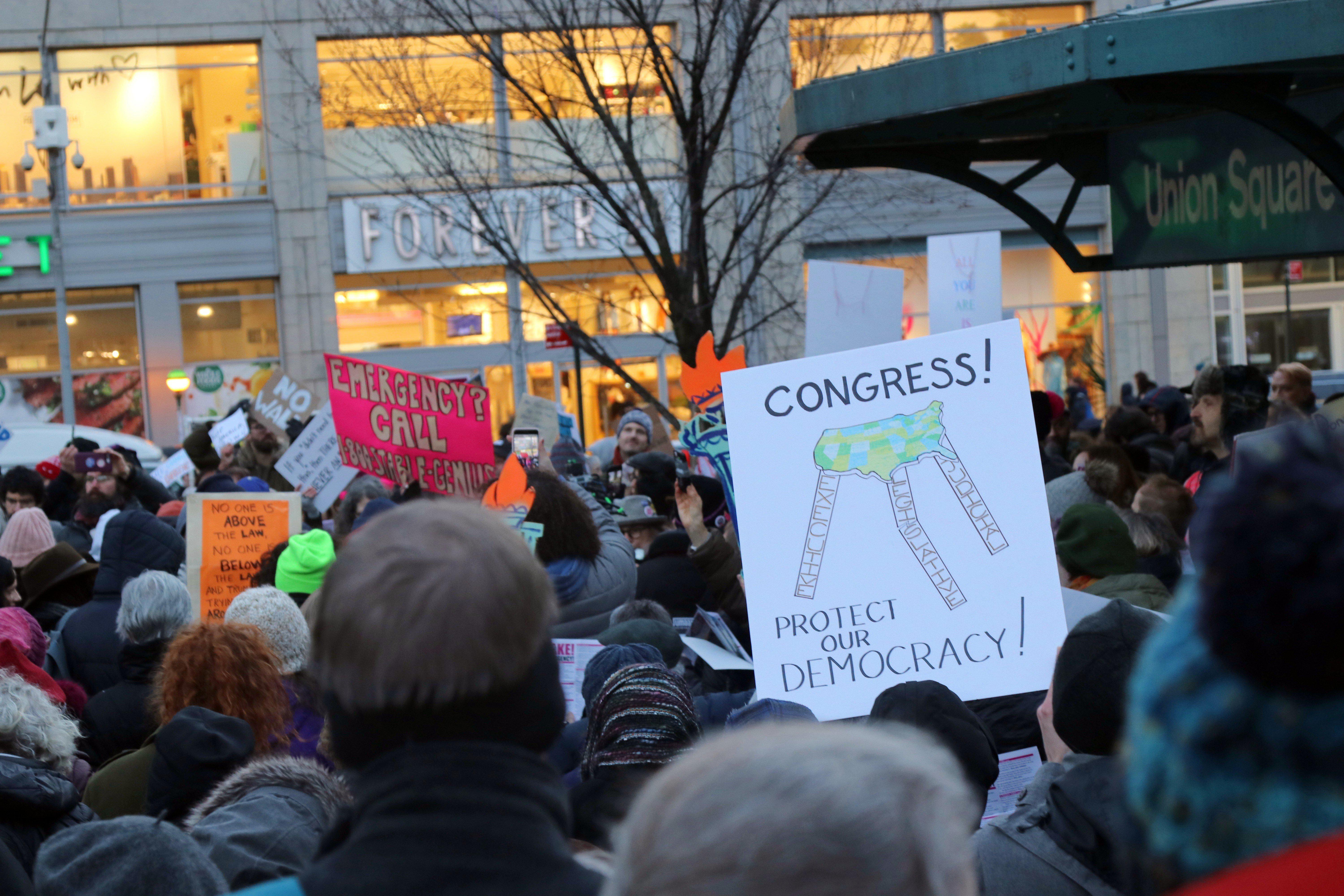
Image by G. Ronald Lopez
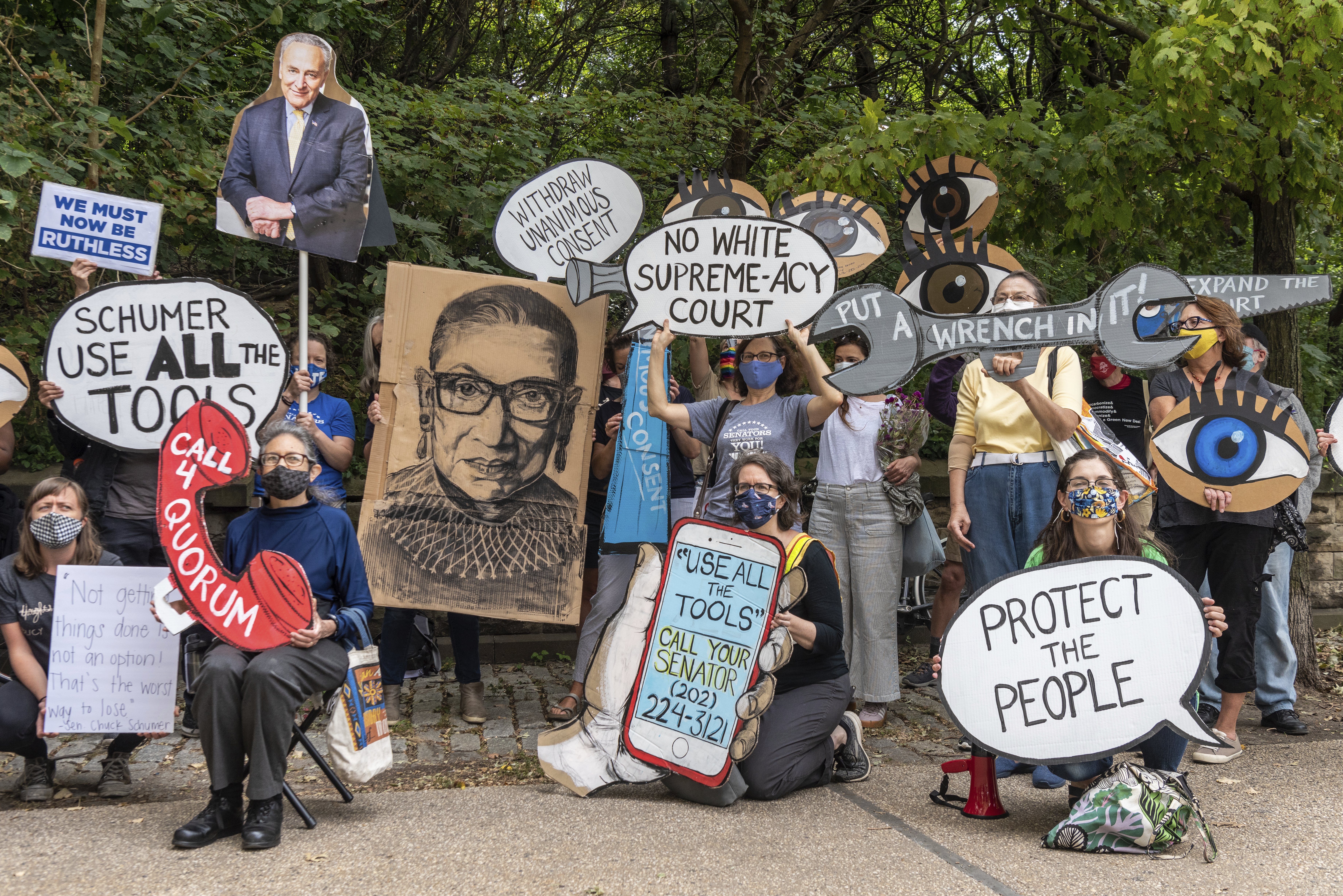
Image by Gabriele Holtermann
We need to take away McConnell’s veto to succeed
Make no mistake, Mitch McConnell will do everything in his power, and
use every procedural tool available to him, to block as much of the
Biden agenda as possible. That means that even with a trifecta,
Democrats will be unable to pass democracy reforms unless they disarm
McConnell by taking away his veto in the Senate—the legislative
filibuster.
McConnell will use the filibuster to kill all legislation.
The
filibuster
is an arcane—but not sacred—Senate rule that allows the
minority party to block legislation by requiring 60 votes instead of a
simple majority. If it remains, Mitch McConnell will be able to use it
to block Democrats from passing democracy reforms, or any of the other
things on their agenda for that matter. If there’s any doubt about Mitch
McConnell’s intentions,
this is how he said he’d deal with Democratic bills in 2021:
They won't even be voted on. So think of me as the Grim Reaper: the
guy who is going to make sure that socialism doesn't land on the
president's desk.
-Mitch "The Grim Reaper" McConnell
Democrats can get rid of the filibuster with a simple majority vote.
Just as Mitch McConnell got rid of the filibuster for Supreme Court
nominees in order to confirm Neil Gorsuch, Democrats can get rid of the
legislative filibuster with a simple majority. When McConnell attempts
to block Biden’s agenda, and we expect he will, Democrats must get rid
of the filibuster in order to deliver on their promises to American
voters.
There is no better alternative to eliminating the filibuster, and we’re
not the only ones who think so. Former Senate Majority Leader Harry
Reid, who witnessed firsthand how Republicans abused the filibuster, has
called for its elimination. Our progressive champions in the Senate,
like Elizabeth Warren and Bernie Sanders, have also argued for the end
of the filibuster. Recently, even former president Barack Obama spoke
out about the damage the filibuster has done to our country, calling the
rule a “Jim Crow relic” whose time had come.
We know that more moderate Democratic Senators, whose votes would be
required to reach that majority threshold, have said they oppose
eliminating the filibuster. But we’re not giving up; the very survival
of our democracy is at stake! So every time Mitch McConnell uses the
filibuster to block something good, it'll be another chance for us to
make the case against the filibuster until we’ve built up enough
momentum to eliminate it.
We can do it, and we can do it this year, but it’s going to take all of
you pushing and demanding and insisting that Democrats must not
voluntarily hand over their power to McConnell.
Reconciliation is too limited a tool.
It is possible to pass some limited legislation with 50 votes using
budget reconciliation
, and some Democrats think this is a safer strategy than getting rid of
the filibuster. However, there are severe limitations to using
reconciliation that would prevent us from enacting the transformative
policy changes we need, including on democracy. For one, reconciliation
is tied to the budget and so there are a limited number of
reconciliation bills that can be passed (one per budget, essentially
meaning one or two per year). Plus reconciliation can only be used for
policy changes that directly impact government taxing and spending,
severely narrowing what’s possible—and leaving out many of the
things we critically need, likely including the most impactful pieces of
structural democracy reforms.
So unless Democrats only plan to pass a couple of budget-related bills,
they’ll have to contend with the filibuster no matter what.
Roadmap to success: the first 100 days
If we’re successful in 2021, we should expect to see Democrats rapidly
pass a series of bold progressive pieces of legislation, beginning with
a recovery package that matches the scale of the crisis, followed by
structural democracy reforms. And the filibuster would be eliminated at
McConnell’s first attempt to block these bills.
Below is a sample timeline of what a good use of a Democratic trifecta
would look like in the first 100 days:
-
January 3, 2021
The new Congress is sworn in
-
January 11-15, 2021
Indivisibles across the country hold The People Lead actions targeting
their members of Congress demanding democracy reforms.
-
January 20, 2021
Joe Biden is sworn in.
-
January 20-early February
Congress passes a bold recovery package that provides immediate relief
for American families:
-
The process begins in the House where Republicans attempt to slow
it down, attack it as socialism or for being too radical, or raise
dubious concerns about the deficit. They disingenuously claim that
they could support a smaller-scale bill, which we know will be
insufficient to deal with the economic crisis.
-
Having learned their lessons from 2009 and from Republicans’
unwillingness to pass meaningful COVID relief throughout 2020,
House Democrats stay united and pass their bold recovery package
on a party-line vote, sending it to the Senate for action.
-
McConnell refuses to cooperate, using the filibuster to block
Democrats from proceeding to a vote on the bill.
-
Democrats in the Senate stay united and use their majority to
eliminate the filibuster in order to pass a recovery bill that
matches the scale of the problem we face
-
February/March-April 2021
Democrats introduce an updated For the People Act, which includes both
DC statehood and at least the first steps on court reform.
-
House Democrats move the bill quickly through committees and onto
the floor where they stay united against Republican attempts to
weaken the bill.
-
House Democrats pass it with another party-line vote and send it
to the Senate.
-
McConnell attacks the bill as a Democratic power grab and attempts
to strip out the biggest pieces of it.
-
Reactionary Tea Party 2.0 protestors target Democrats during the
February and March recesses, but they are outmatched by
progressive activists, led by Indivisible Groups, who show up in
support of democracy reforms
-
Senate Democrats stay united and pass a bold democracy bill and
send it to President Joe Biden for signature.
-
March-July 2021
Democrats continue to move quickly through the biggest pieces of their
agenda, including further action on climate, immigration, health care,
etc.
What about my top priority policy issues?
As we’ve said, democracy reform is the solution to a variety of
problems. Until we fix our democracy, we can’t win permanent,
legislative solutions for everything else we care about. But we know
the unraveling of our democracy is not the only threat we face, and
our governing agenda does not stop once we’ve won broad democracy
reforms.
See here to learn more about our other policy priorities.
